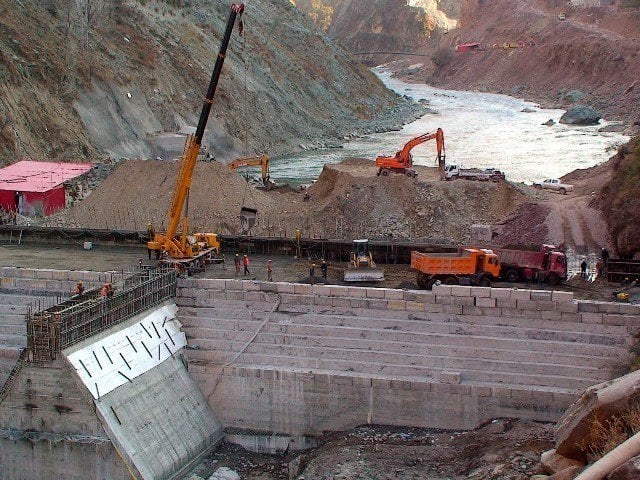In a significant development, China’s insurance company, M/s Sinosure, has expressed readiness to proceed with the implementation of the 700-MW Azad Pattan Hydropower Project and the 1124-MW Kohala Hydropower Project. This decision comes under the guidance from Beijing, marking a pivotal step in the advancement of these key energy projects.
For years, successive Pakistani governments have endeavored to launch these critical hydropower projects. However, the efforts faced substantial roadblocks due to Sinosure’s reluctance, primarily stemming from the existing payment issues with other companies and the daunting circular debt, which currently hovers around Rs 2.6 trillion. This financial quagmire has been a significant deterrent for international investors and insurers alike.
Recent high-level engagements have turned the tide. The Minister for Planning, Development, and Special Initiatives of Pakistan, during an official visit to China, engaged with top officials of Chinese companies, highlighting the delays in these essential projects due to Sinosure’s hesitancy. Encouragingly, these discussions elicited a positive response from the Chinese leadership, suggesting a newfound commitment to moving forward with the projects.
Following the ministerial meeting, Pakistan’s Embassy in China has been actively pursuing the issue. A follow-up meeting between the Minister for Planning and the President of Sinosure, Sheng Hetai, has led to a series of consultations aimed at expediting the projects. Counsellor Haseeb Gohar and Guo Shuang from Sinosure have been instrumental in these discussions.
The embassy reported several critical outcomes from these interactions:
- Mandatory Guidance from Beijing: Sinosure has received clear instructions from the Chinese government to proceed with the Azad Pattan and Kohala Hydropower Projects.
- Need for Letters of Intent (LoI): Pakistan needs to prompt Chinese investors to submit new LoIs for these projects. The previous LoI for Azad Pattan, submitted by China Gezhouba Group Company (CGGC) in April 2023, has expired. Hence, there is a pressing need to submit a fresh LoI either by CGGC or another investor. Similarly, an application or LoI for the Kohala project has yet to be submitted by China Three Gorges (CTG) or another company.
- Economic Feasibility Reports: Sinosure requires resubmission of the economic feasibility reports, which should incorporate arrears. These reports will be independently evaluated and will not influence Sinosure’s decision-making process.
In March 2024, the Private Power and Infrastructure Board (PPIB) issued a directive to M/s Azad Pattan Power (Pvt) Ltd (APPL), allowing them one month to commence work on the 700.7-MW project, including obtaining necessary approvals from Sinosure. The PPIB emphasized that delays in this large-scale project are disrupting power generation planning. Should the sponsors of Azad Pattan fail to start development activities, PPIB might consider alternative mechanisms for excluding the project from the Integrated Generation Capacity Expansion Plan (IGCEP) to accommodate other pipeline hydropower projects.
Representatives from APPL have noted an improvement in confidence levels on the Chinese side. CGGC headquarters are actively working towards obtaining the necessary LoI from Sinosure. They have requested PPIB to continue its support to resolve Sinosure clearance issues promptly.
Last October, the Ministry of Planning, Development, and Special Initiatives expressed concerns about the low probability of achieving financial closure for the 700-MW Azad Pattan and 1124-MW Kohala projects. Despite these challenges, Chinese companies and the Government of Pakistan have persistently worked to persuade Sinosure to ensure insurance for both projects.
These developments signify a hopeful future for Pakistan’s energy sector. With Sinosure’s renewed willingness to support the Azad Pattan and Kohala projects, there is potential for significant progress in addressing the country’s power generation needs. These hydropower projects, once completed, will contribute substantially to Pakistan’s energy mix, promoting sustainability and energy security.




